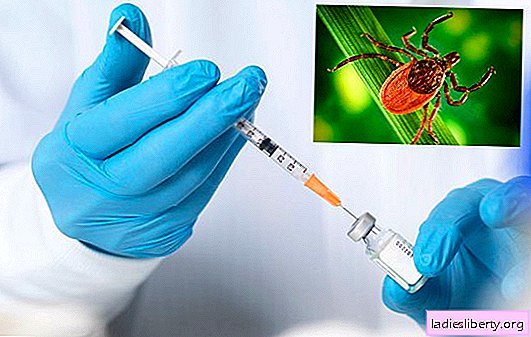
The number of reported cases of TBE in Russia has increased significantly. The disease is transmitted by ticks and can end fatally. However, each person can be vaccinated against an infectious disease.
The number of cases of TBE at a new record high
The incidence of tick-borne encephalitis has increased since 2001. In 2018, 583 cases were detected and, therefore, almost 100 diseases in Russia. This is the largest number of cases of tick-borne encephalitis since the introduction of mandatory reporting.
Infectious disease is transmitted by specific ticks - Dermacentor silvarum. First of all, people who live in high-risk places should be vaccinated in a timely manner.
Ticks transmit various diseases
Ticks spread borreliosis throughout Russia - a disease caused by bacteria. Borreliosis affects mainly the skin, nervous system and joints. Tick-borne encephalitis is also transmitted in most cases by tick bites.
In rare cases, a viral pathogen is transmitted through raw milk from sick goats or sheep, but not from person to person. Approximately 1/3 of people infected with encephalitis show signs of the disease.
Tick-borne encephalitis symptoms are fever, headache, vomiting, and dizziness. Some patients also develop meningitis and encephalitis with a risk of spinal cord damage. In extreme cases, the disease is fatal.
The patient can get tick-borne encephalitis vaccine for free. According to health professionals, vaccination against a viral pathogen should be timely.
Who needs a vaccine?
Before the start of active time in the open air, you need to be vaccinated against viral encephalitis. The recommendation does not apply only to travelers on vacation at risk of disease. Even for people living in high-risk areas, vaccination against TBE is important.
Anyone who lives outdoors in a hazardous region, especially in the forest, is advised to use the TBE vaccine. It makes sense to stick to some tips for protecting against pathogenic ticks.
Experts advise putting on pants in socks when going outside and using shirts or T-shirts with long sleeves. In addition, special insect sprays can keep small animals away.
Between April and September, no risk of infection is expected.
According to scientists, tick-borne encephalitis is currently found in Siberia, the Urals, the Far East, the Northwest region and the Volga region. Ticks become infected from virus carriers - animals.
Wild ungulates, birds and other warm-blooded animals can serve as a reservoir for viruses. Tick-borne diseases are common in spring and summer. However, in 2019, an increase in the prevalence of tick-borne encephalitis is not expected.
Subsequent vaccination cannot prevent the disease.
As explained by the Ministry of Health, after 3 vaccinations, longer-term protection of the TBE vaccine is provided. According to the usual vaccination schedule, the first two vaccinations are carried out at intervals of 14 days or from 1 to 3 months.
The short-term protection of the second vaccine is effective after approximately 14 days.
For longer protection, a third vaccination is needed. The medicine is administered after 5 or 9-12 months. If the virus transfer has already taken place, subsequent vaccination can no longer prevent the occurrence of the disease.
What complications arise with tick-borne encephalitis?
In approximately 70% of symptomatic patients, body temperature rises to 40 ° C. At this stage, signs of damage to the brain and membrane also appear: headache, vomiting, and nausea.
The second stage of the disease occurs in approximately 50%. 40% of patients experience meningoencephalitis with severe impaired consciousness and paralysis, including respiratory failure.
No causative therapy exists, nor are specific antiviral drugs. As soon as the disease has erupted, only symptomatic therapy is possible, aimed at alleviating individual symptoms.
The therapeutic spectrum includes bed rest and painkillers. The use of antipyretic and glucocorticoids is recommended. In severe cases, intensive care with parenteral nutrition and fluid replacement is necessary.











